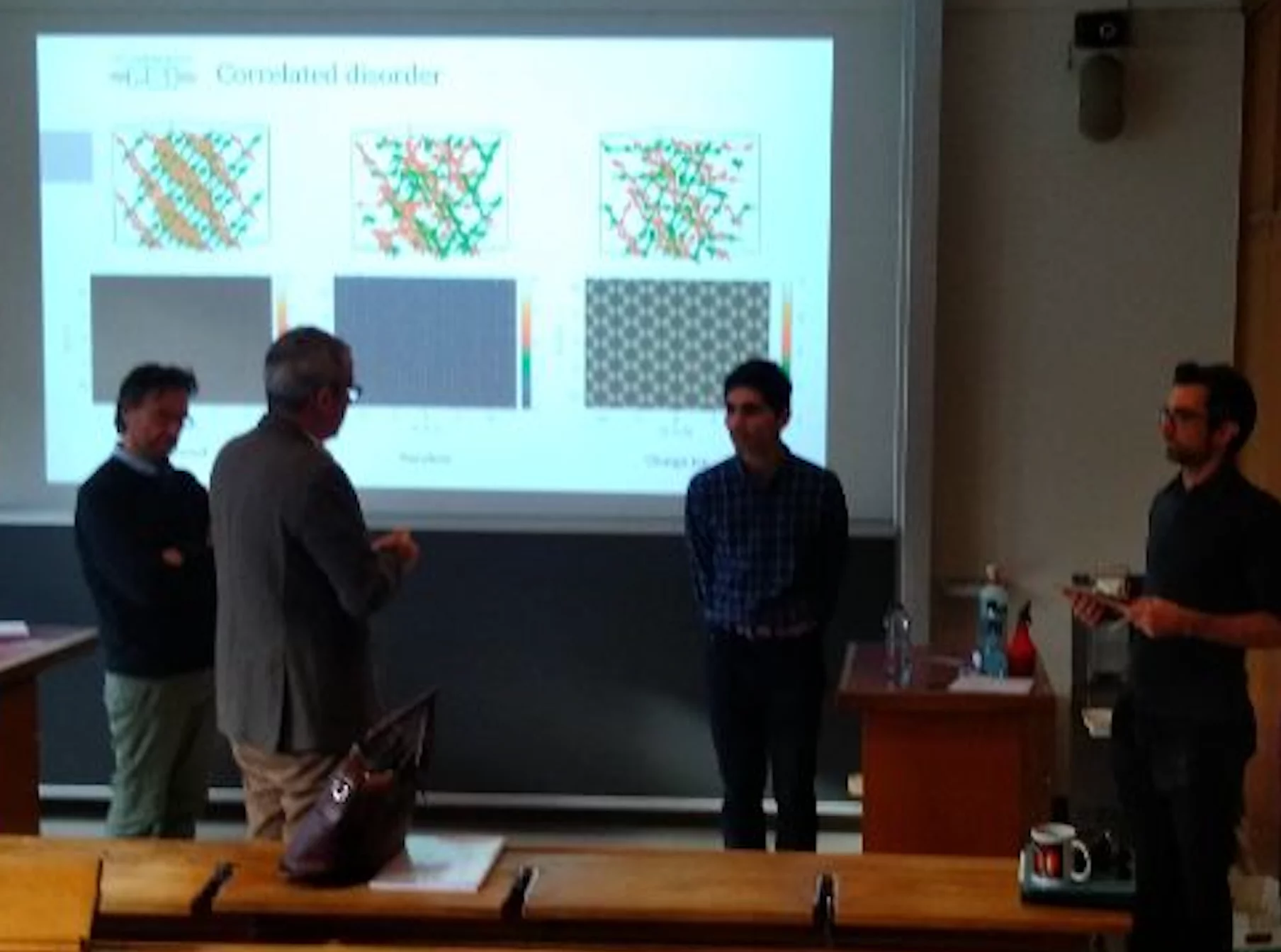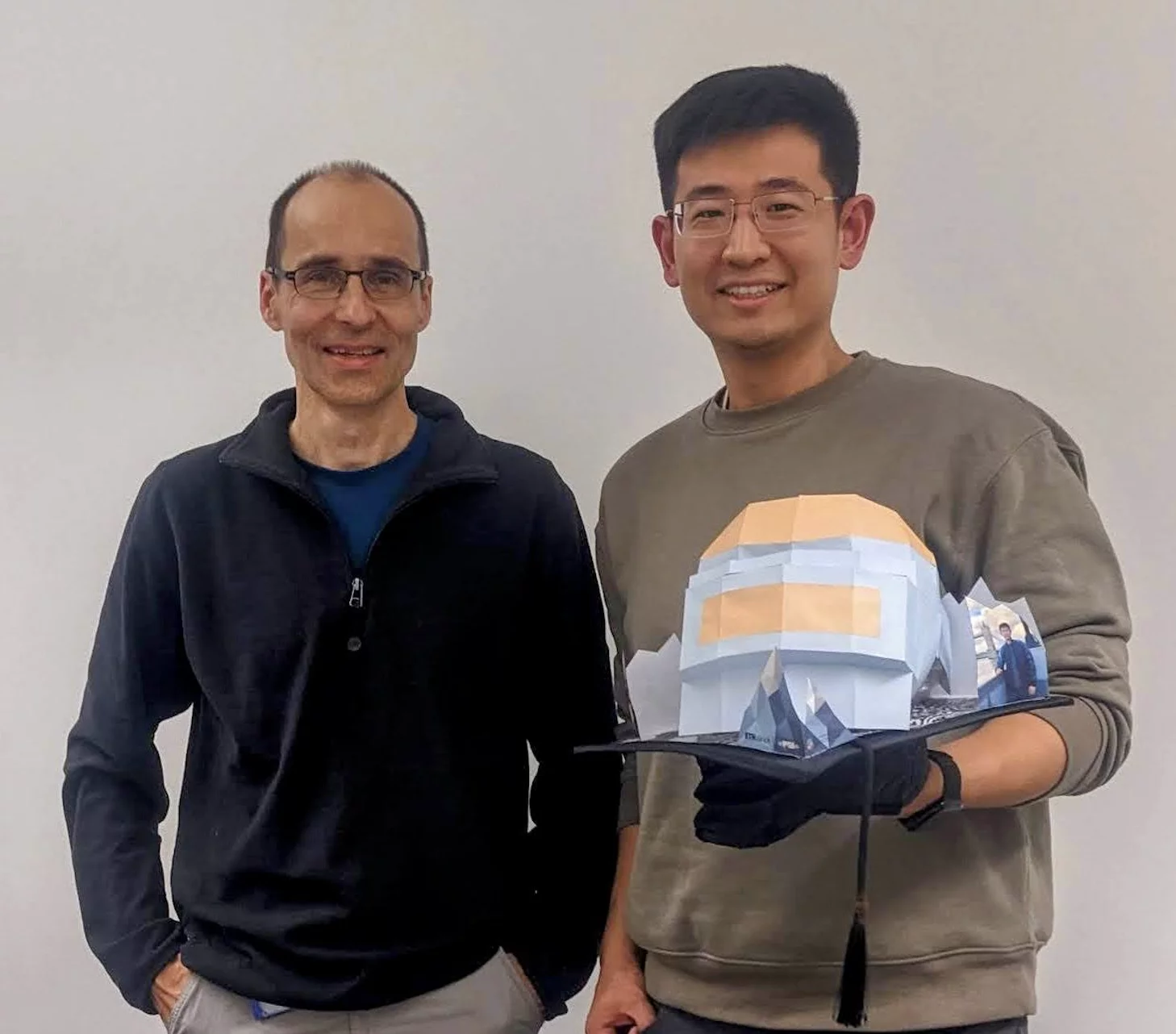Correlated structural disorder in magnetic materials
Dr Amirreza Hemmatzade defended his PhD thesis at Université de Genève on December 20th 2023. The committee of Prof. Dr Christian Rüegg (PSI/Geneva), Prof. Dr Fabian von Rohr (Geneva), Prof. Dr Peter Derlet (PSI/ETHZ), and Dr Tom Fennell (PSI), accepted the thesis with the mention Tres Bien. Joining the LNS in October 2019 after completing a Masters degree in Quantum Materials at the Sorbonne University, Paris, France, Amir began investigating the effects of correlated structural disorder in magnetic materials. He has particularly focused on the material CsNiCrF6, a pyrochlore in which Cr3+ and Ni2+ are mixed in equal proportions on the pyrochlore lattice and are known to form a charge ice – a state in which there should be strongly correlated bond disorder for the magnetic interactions. Using primarily inelastic neutron scattering, DFT calculations and numerical spin dynamics simulations, Amir was able to produce a model of the spin system that accounts well for the observed spectrum (and numerous other experimental observations), the first realistic Hamiltonian for a magnetic charge ice. The work shows that by forming loops of ions of the same species that have a power-law length distribution, the underlying bond disorder controls the spin dynamics in a clearly identifiable way and forms the first identifiable example of an algebraic loop liquid. The LNS congratulates Amir for these achievements and wishes him continued success in his next steps.
Colloidal Microgels and Macrogels
After his graduation at Illinois Wesleyan University, and master thesis at Georgia Institute of Technology, Dr. Boyang Zhou joined the Soft Matter group at LNS in March 2020, working on his PhD thesis titled “Effect of Softness and Charges on the Volume Phase Transition of Colloidal Microgels and Macrogels”. His thesis was successfully defended on January 11th 2024, at ETHZ. The external committee has joined the supervisors, Urs Gasser (PSI), Alberto Fernandez-Nieves (U. Barcelona) and Lucio Isa (ETHZ), to approve Boyang’s work. Microgels and macrogels are of great interest in both applications and fundamental research, due to their stimuli-sensitive nature and tunability. However, their softness increases the number of degrees of freedom compared to hard colloidal particles and gives rise to a more complex behavior. So far, there was no generally accepted model to describe microgel interactions, especially for concentrated microgel suspensions. In his thesis, Dr. Zhou studied the effect of counterions on the microgel periphery resulting from the use of ionic initiators in the synthesis. He confirms that counterion clouds are present and can delocalize and control the swelling of the microgel. Such results not only contribute valuable insights for developing a model to describe microgel interactions but also showcase the capability of small-angle neutron scattering (SANS) in studying soft matter. The LNS congratulates Dr. Boyang Zhou for this achievement and wishes him the best for his upcoming bright career.



